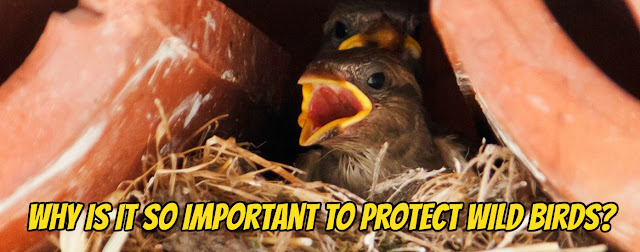Got a feathery visitor stuck in your chimney in Poole? Don't fret! As your local Poole chimney sweep expert, I know how unsettling it can be to find a live bird trapped in your chimney, stack, flue, or liner. It's a tricky situation for both you and the bird, but with a calm approach, you can safely guide the bird back to freedom.
 |
| Bird Stuck in chimney |
Here’s a 10-step guide from your trusted Poole chimney sweep to help you remove a live bird from your chimney:
What You'll Need to Remove a Live Bird From Your Chimney
Before you begin, gather these essential tools:
- Large Box: Something big enough to fit inside your fireplace opening.
- Stiff Cardboard Sheet: Ensure it's larger than the opening of your box.
- Torch: To help encourage the bird out.
- Mirror: Useful for looking up the chimney.
- Sheets: To protect your carpets and furniture from soot and mess.
- Towel: For safely catching the bird if it gets into the room.
- Broom: To gently guide the bird.
- Gloves: For protection when handling the bird.
How to Safely Remove a Live Bird From Your Chimney
- Locate the Bird: Carefully peek inside your chimney. Use your torch and mirror to get a better view if needed and pinpoint the bird's location.
- For Wood Burners: Sometimes the bird might be sitting on the baffle. You'll need to remove this to get to the bird. Look up your stove's manual for guidance on how it's assembled. This usually involves moving a metal or vermiculite baffle left or right and potentially removing side bricks.
- For Open Fires: The bird is usually sitting on the shelf, often within arm's reach.
Open the Damper: If your fireplace has one, ensure the damper is fully open.
Contain the Room: Close all doors leading from the room to the rest of your house. This is crucial to prevent the bird from flying into other areas if it escapes the chimney.
Protect Your Space: Lay down sheets around the fireplace area to protect your carpets and furniture from any soot or debris the bird might dislodge.
Set the Trap: Turn on your torch and place it inside the large box, with the open side facing up.
Position the Box: Carefully place the box inside the chimney opening. You might need to prop it up with another box so there's a small gap between the top of the box and the highest point of the fireplace opening. The idea is to make the torch-lit box the most appealing escape route for the bird.
Alternative for Open Fires (if the bird is on the shelf): Wear gloves. You can gently place your hand on the shelf, allowing the bird to get used to your presence. Then, slowly slide your hand under the bird. It will often grab hold of your hand like a branch with its feet. This way, you can maneuver the bird sideways to come out of the gap between the shelf and the fire opening.
Create Silence: Turn off any TVs, radios, and keep talking to a minimum. A quiet environment will encourage the bird to move towards the light and into the box.
Capture the Bird: Once the bird enters the box, gently slide the cardboard sheet over the opening, trapping the bird inside.
Relocate Outdoors: Carefully remove the box, with the bird inside, from the chimney and take it directly outside.
Release: Once outside, remove the cardboard top from the box to set the bird free.
What to Do if the Bird is Already in Your Room
If the bird has already made its way into your living space, follow these steps:
Isolate the Room: Close all interior doors to prevent the bird from flying into other parts of your house.
Open to the Outside: Open all windows and doors leading directly to the outside.
Create an Exit Light: Turn off interior lights to make the room darker than the outside, encouraging the bird to fly towards the natural light. If it's dark outside, turn on an exterior light near an open exit.
Guide or Catch:
- Guide: Gently use the broom to guide the bird towards an open window or door.
- Catch: If you can, slowly and carefully throw a towel over the bird to trap it. Then, gently pick up the towel with the bird inside and take it outside to release it.
Has a Bird Nested in Your Chimney?
If you suspect birds have built a nest in your chimney, it's crucial not to disturb it immediately.
Many bird species are protected by law, especially during nesting season.
The best time to address a chimney nest is at the end of the bird season, typically in September, once the nest is no longer active. At this point, it's safe and legal to book your Poole chimney sweep to remove the unused nest.
For professional chimney sweeping in Poole or expert advice on chimney maintenance, don't hesitate to contact me. I'm here to help keep your chimney clear and safe!
How to Prevent Future Bird Incidents with a Chimney Cowl
Once you've safely rehomed your feathered visitor, you'll definitely want to prevent it from happening again. The best long-term solution to stop birds from getting into and nesting in your chimney is to have a chimney cowl fitted.
A chimney cowl, often that hooded contraption perched right on top of your chimney pot, offers a surprising range of benefits beyond just keeping birds out. It acts as a proper shield against rain, sleet, and snow, stopping moisture build-up that can damage your chimney lining and lead to rather costly repairs.
Most importantly for what you've just been through, a cowl with a mesh screen specifically keeps unwanted guests like birds and squirrels out, preventing future blockages and potential fire hazards from their nests and debris.
Beyond just seeing off the birds, a properly designed cowl helps prevent downdraughts that can blow smoke back into your home, ensuring a smooth and efficient draw for better airflow and a cleaner, more efficient burn. This translates to a cosier fire and potentially reduced fuel consumption.
With a chimney cowl in place, you can relax knowing your chimney is protected from the elements, unwanted critters, and potential fire risks, giving you peace of mind all year round.
As your local Poole chimney sweep, I can assess your specific chimney needs, and recommend the most suitable cowl for optimal performance. I'll make sure it's fitted securely and properly for lasting benefits, protecting your chimney and helping you enjoy a trouble-free fireplace.
For the Jim Chim-in-ey's latest sweeping and cowl fitting prices visit:
 |
| Call Jim to book your Bournemouth, Poole, Wimborne & Dorset Chimney Sweep Today |
______________________________
This article was written by Jim Chim-in-ey,
An insurance approved chimney sweep
JC sweeps all open fires, wood burners and stoves.
Covering Bournemouth, Poole, Blandford Forum, Wimborne, Christchurch and Dorset.
Want to have your chimney swept?
Contact JC Today!














